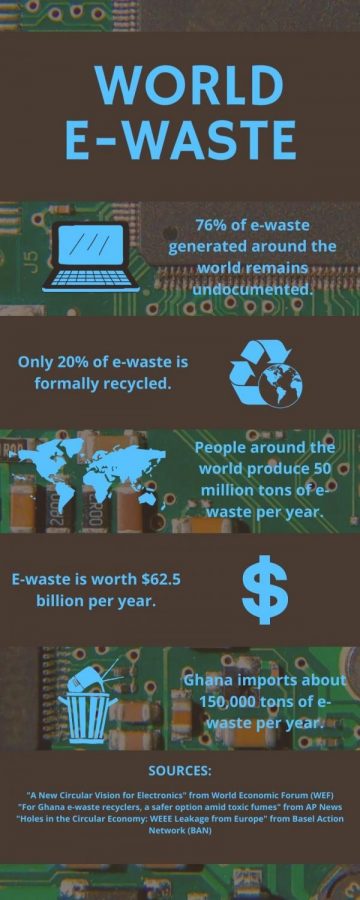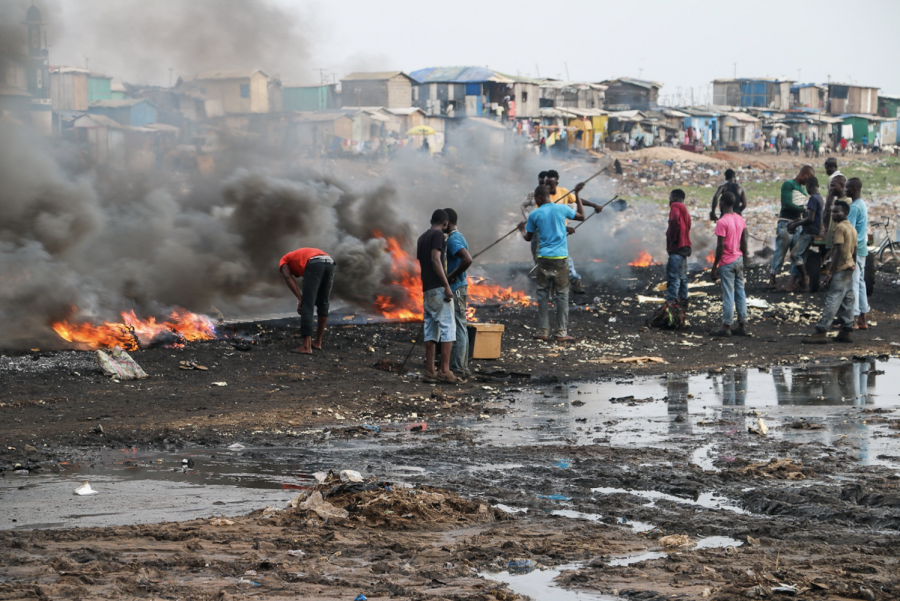Burning site, Agbogbloshie / Fairphone / Flickr / CC BY-NC 2.0
Ghanaian people burn e-waste at Agbogbloshie to obtain the valuable metals inside.
Toxic treasure in Ghana
Noxious fumes swirl above Ghana’s capital city, Accra.
One inhale of this acidic black smoke might lead to a dry throat, maybe a cough. A few hundred more could result in disease.
A Ghanaian man takes a breath of this toxic air as he feeds a fire with a long metal rod in hand. At his feet sits a first-generation MacBook, crackling in the flame. He tends to the laptop whose shattered screen and exposed wires lead many to perceive it as trash.
But as the flame finally burns out and the toxic black smoke fades, valuable metals emerge. Such toxic treasures distinguish this “waste” from the rest of the Agbogbloshie scrapyard.

“Many people who would visit Agbogbloshie would say, ‘Oh, this looks like a dumpsite. It looks like a landfill, right?’ But if you hang out there and you talk to people there, and you spend any time there, you learn very quickly that it’s a scrap metal market,” said Peter Little, a professor of anthropology at Rhode Island College.
The market operates near Accra, Ghana’s largest and capital city. The extraction of metals such as copper, silver, and gold from second-hand electronics characterizes a vital part of Accra’s economy. Thousands of workers earn a living sorting through and finding the value in e-waste.
“There are folks whose job is to collect electronics from households and businesses,” Little said. “They bring the electronics to the scrapyard, where they are then broken down or sold.”
People rarely view recycling as an economic activity rather than a means of bettering the environment. However, monetary incentives play a significant role in the recycling process.
“There are a lot of business negotiations happening at Agbogbloshie. So lots of social and economic activity is going on,” Little said.
While this profitable enterprise may represent the economy of Agbogbloshie, e-waste does not characterize the lives of Ghanaians. The nation’s society and culture exceed its dangerous e-waste management.
“If you were to go to Agbogbloshie, you would smell and be exposed to toxins. You would get why this risk is an angle that would be the focus of international reporting on the place,” Little said. “But the workers live very complex lives.”

